EU troops can still help in Mali
A ‘plug-and-play' approach to peacekeeping lacks the glamour of a full-scale military intervention but it could be a cheaper and a more strategic approach for the EU to deal with the situation in Mali.
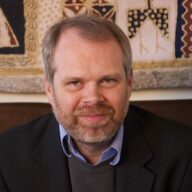
Associate Senior Policy Fellow
United Nations system; European security and defence policy; Africa; Western Balkans
English
Richard Gowan is an associate fellow at the European Council on Foreign Relations.
He is currently UN director at the International Crisis Group, and was previously research director at New York University’s Center on International Cooperation. He has taught at Columbia University’s School of International and Public Affairs and Stanford in New York, and wrote a weekly column on multilateralism (“Diplomatic Fallout”) for World Politics Review from 2013-2019. He has acted as a consultant to the UN on peacekeeping, political affairs, and migration.
A ‘plug-and-play' approach to peacekeeping lacks the glamour of a full-scale military intervention but it could be a cheaper and a more strategic approach for the EU to deal with the situation in Mali.
Lakhdar Brahimi has been the United Nations and Arab League envoy for Syria for less than five. But while his chances of orchestrating a peace deal are now vanishingly small, he should not quit quite yet.
The gathering of world leaders at the United Nations this week will be punctuated by angry statements on the Syrian…
With Russia due to play a central role in multilateral institutions over the next two years, its obstructionism over Syria does not bode well. However Europeans may find – to their benefit – that it is actually China that calls the shots on the international stage.
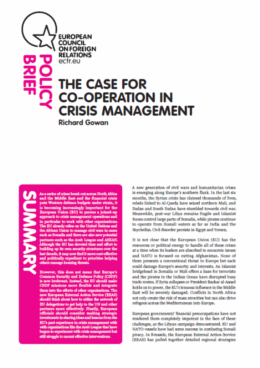
The case for cooperation in EU crisis management
A growing number of diplomats are arguing Kofi Annan's peace plan is failing. But is it better for the U.N. to oversee, and arguably provide cover for, the current violence or retreat and open the way for something potentially worse?
The coming season of grand international summits means the problems of the Eurozone will once again be thrust upon the global stage. But at least this time European leaders don't have to worry about Silvio Berlusconi.
Kofi Annan has created a diplomatic framework for dealing with the Syrian crisis. However, the security situation has changed and Annan must move with deliberate caution to make the 'Syrian-led political process' a success.
On Sunday, the Arab League agreed to continue its controversial observer mission in Syria. In this piece, originally published by Foreign Policy two days before the League meeting, Richard Gowan makes the case for keeping the mission going.
Europe should not confuse development aid’s role in reducing forced migration with that of reducing migration more broadly
Despite the existing crises to the multilateral system, the EU possesses a set of specific strengths needed to actually save the system
The turmoil in the current system represents an opportunity for Europeans to shape a new order that meets their strategic needs
Brexit has the potential to upset European coordination on development and human rights across the UN system
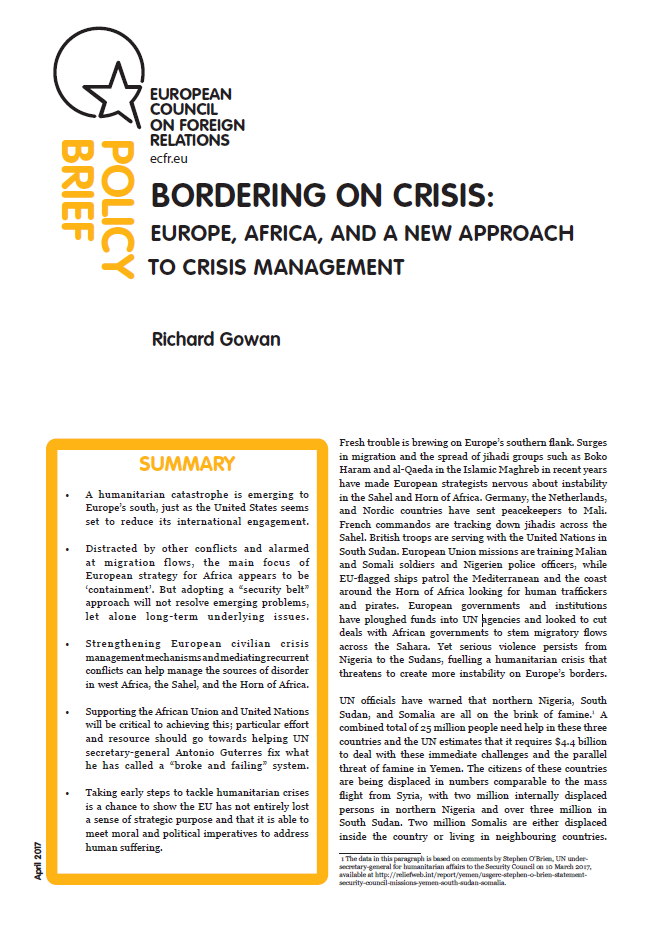
Taking early steps to tackle humanitarian crises is a chance to show the EU has not entirely lost a sense of strategic purpose and that it is able to meet moral
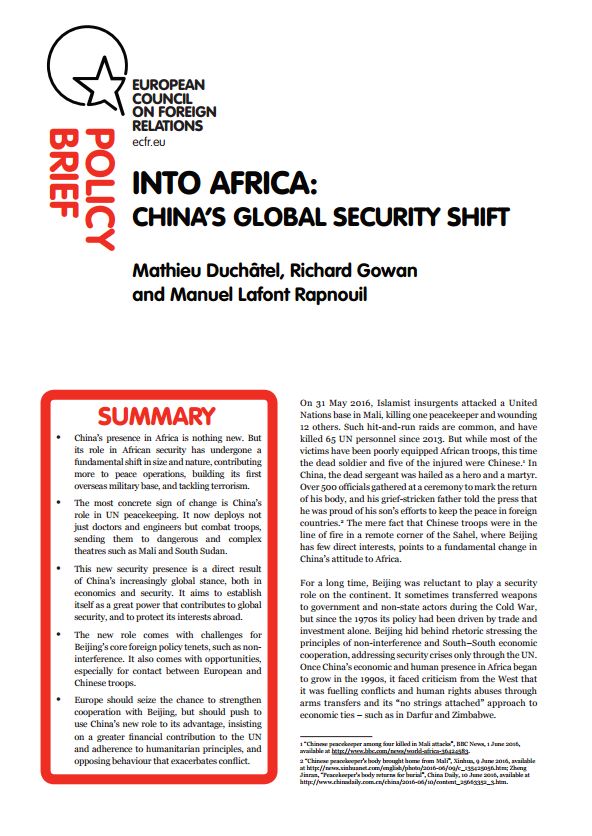
China is taking on a new military role in Africa, seeking to boost its image as a great power that promotes peace and security worldwide
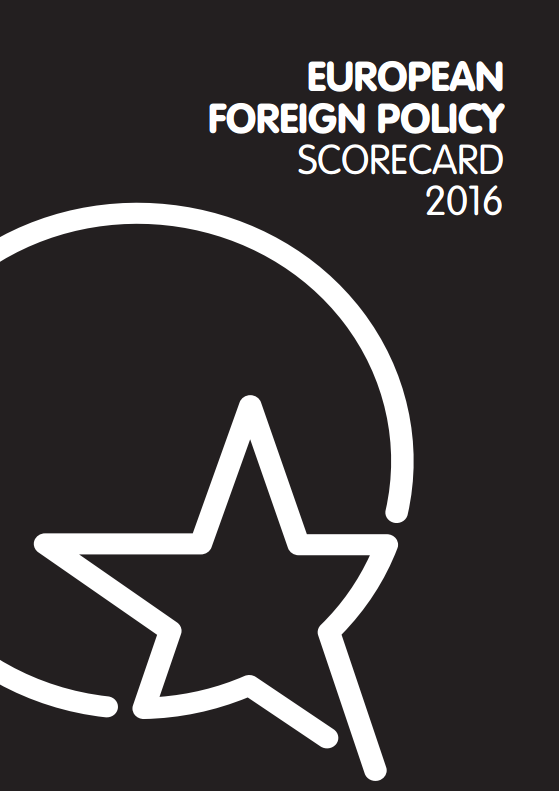
The sixth ECFR Foreign Policy Scorecard highlights the EU’s diminishing ability to influence its neighbours, and the neighbourhood’s growing impact on the EU
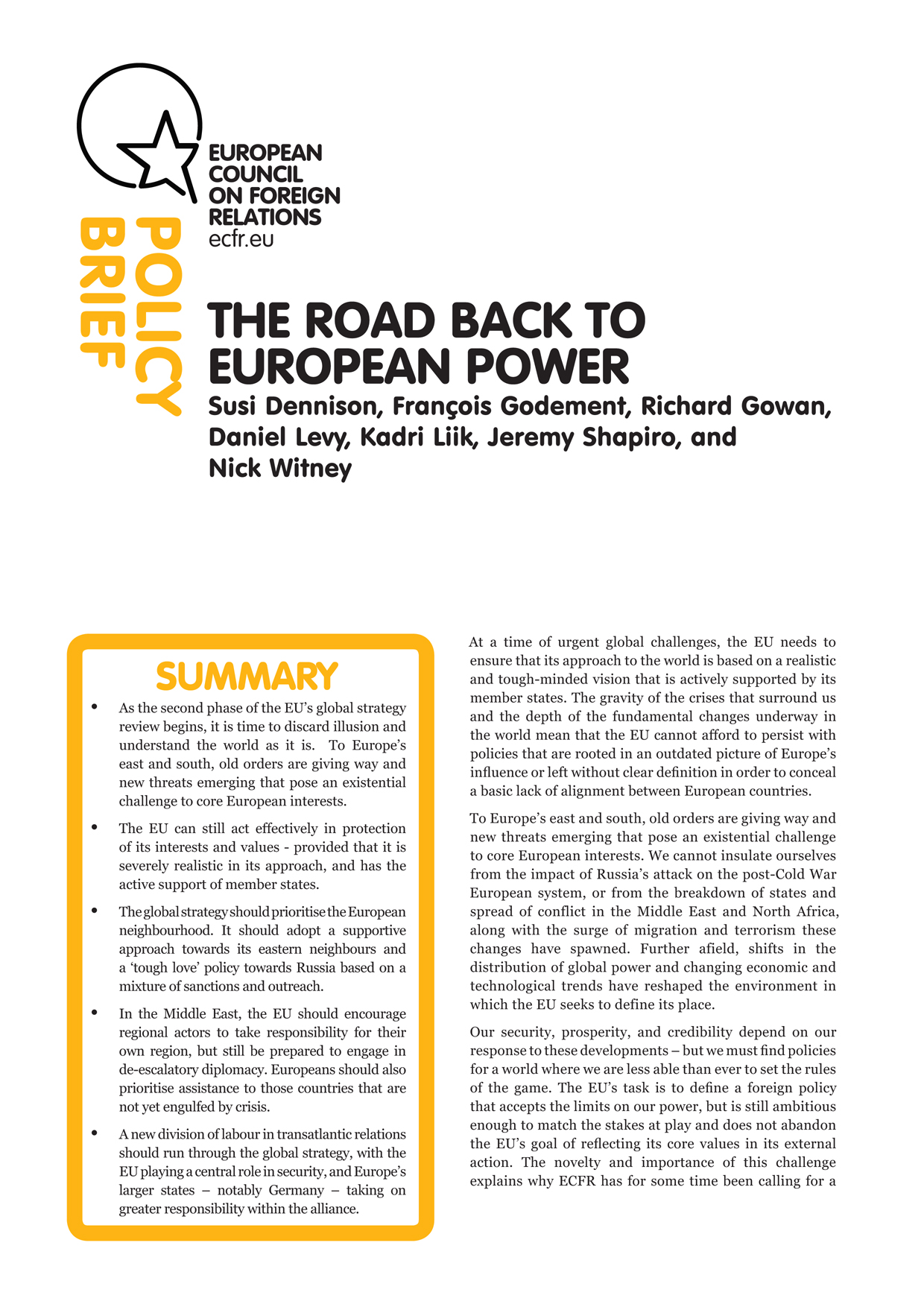
The EU needs an honest assessment of its capabilities and to set limited goals behind which member states can show sustainable unity
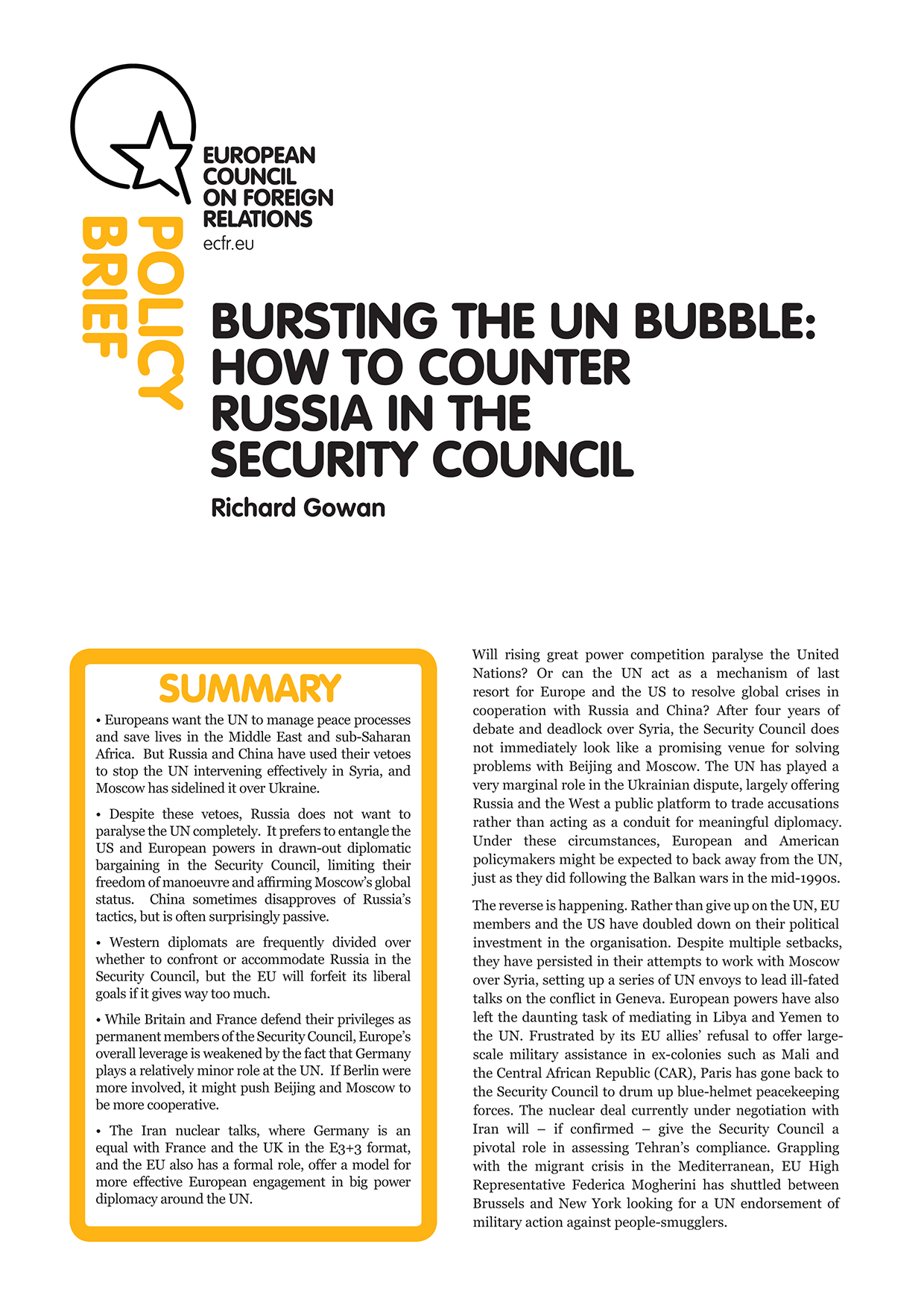
Europe must learn the lessons of the Iran negotiations and boost Germany’s role at the UN Security Council to combat Russian blocking tactics

The EU’s habit of outsourcing its military interventions is problematic for a multitude of reasons
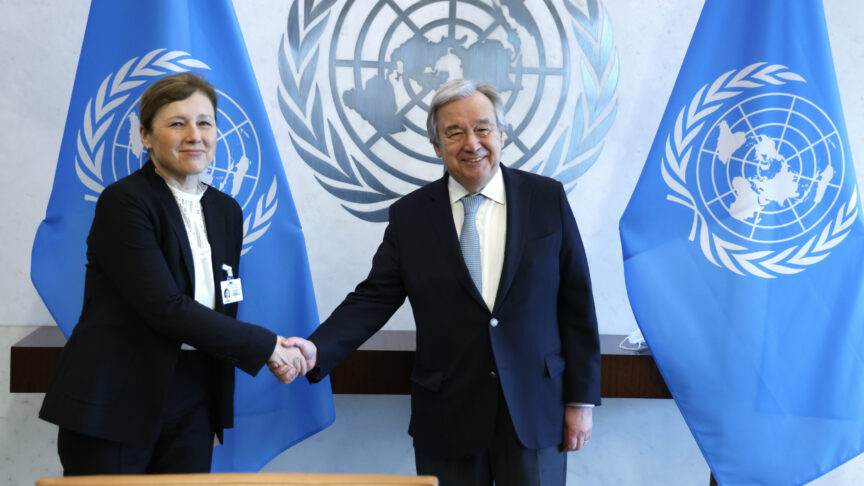
The West no longer has a monopoly on values at the UN. But Europeans can shape a new narrative in the changing multilateral system by emphasising their commitment to sovereignty, development, and openness
Although their new friendship treaty does not call for an EU Security Council seat, France and Germany must pitch a compelling vision of multilateralism at the UN
Brutal transactional talks is the only language the new National Security Advisor understands
Running the United Nations is a lonely job for António Guterres – and he seems to prefer it that way.
Before January, Europeans should make preparations to safeguard the UN, again
There are still, for now, some very serious European contenders with real chances of success.
Even if the UK is a diminished power after Brexit international partners will still need its cooperation in the UN and NATO
This week’s World Humanitarian Summit was an opportunity to discuss how to assist the suffering, yet the entire process showed much of the humanitarian sector at its most fragmented and self-indulgent
The European response to the Syrian refugee crisis to date has been characterised by short-term and reactive measures. But this is going to be…
While Syrians currently account for almost 20 percent of the 60 million refugees and IDPs worldwide, they are by no means the only ones…
The multilateral system faces three related crises of power, relevance, and legitimacy. This fraying consensus threatens the EU, which is committed to multilateralism. But the…
Mark Leonard and Richard Gowan go through the likely talking points at the meeting and discuss what might be on some countries' hidden agendas. The…
ECFR’s director Mark Leonard talks with ECFR’s U.N. expert Richard Gowan among other things about Trump and Macron's addresses at the UNGA, the Korean nuclear crisis,…
This workshop, organised with the Embassy of the Netherlands in London, discusses crisis management in Africa in the age of Trump and Brexit. With:…
ECFR’s director Mark Leonard speaks with Senior Policy Fellow Richard Gowan about the candidates, and the factors that will decide the race. The podcast was recorded…
ECFR’s director Mark Leonard speaks with Somini Sengupta, UN correspondent for the New York Times, Richard Gowan, ECFR Senior Policy Fellow, and Manuel Lafont Rapnouil,…
Richard Gowan, Senior Policy Fellow at ECFR and Professor at Columbia University, explains why the EU received a B- for how it dealt with…
Richard Gowan, ECFR Associate Fellow and author of Chapter 6, believes that there were several crises the EU had to face in 2014. How…